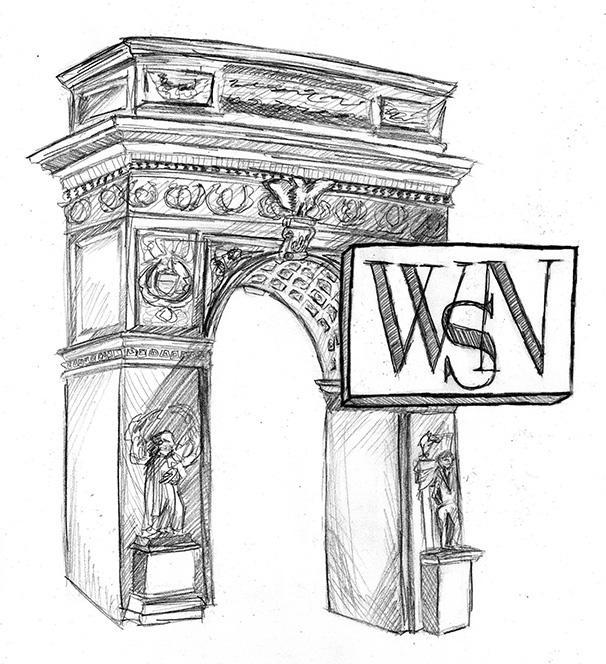Each year, NYU touts accepting their most diverse class ever, admitting a myriad of international students, first-generation college-attendees and students from underrepresented communities. This year, NYU received 100,131 applications, one of the highest number of applications in U.S. college history. After admissions decisions for the class of 2025 were released earlier this month, the university saw a sharp drop in admissions rates, decreasing from 15% the previous year to 12.8%.
Despite its academic selectivity and diversity, New York University remains one of the most expensive colleges in the world with its tuition fees coming in at $54,880 a year without student housing. After COVID-19 forced colleges around the country to adapt to a remote learning model, students were ousted from the classroom, in-person extracurricular activities, and many other functions that make college life worth paying for.
As a result, students came forward with suits against the university, urging them to make their remote experience affordable. However, in January of this year, Bloomberg reported that NYU threw out numerous lawsuits requesting partial tuition refunds due to the pandemic’s toll on the quality of education. This blatant disregard for students’ shifting economic needs as a result of the pandemic lends credence to the fear that elite colleges like NYU are run like businesses rather than an environment that fosters professional growth. Yet beyond the pandemic, economic needs, and the neglect students feel from the university, are ever present among students.
Socioeconomic diversity is much more than just a noble goal. A diverse campus provides critical opportunities for students who have been traditionally excluded from elite higher education. Furthermore, economic diversity benefits all students — not just students from low-income families. One study found that universities with socioeconomically diverse student bodies have more frequent interactions across class lines. This, in turn, is associated with more frequent interactions across race and greater engagement in diversity-related activities overall. Campus diversity enriches the educational experience, as students have the opportunity to interact with people with different backgrounds and upbringings. Aspiring for greater economic diversity at NYU or any other university is an obligation that underscores a fundamental, yet often overlooked, goal of higher education: providing expanded opportunities for all and offering experiences that broaden each student’s worldview.
Furthermore, universities are one of the main conduits of social mobility. This makes maintaining diversity, including economic diversity, matter significantly to universities. Consequently, over the last decade, dozens of colleges have proclaimed new commitments to maintaining economically diverse student bodies. NYU was among these schools — in February 2016, President Hamilton announced affordability as a top priority and created two committees to help look for ways to make NYU more affordable. NYU has already achieved significant strides in economic diversity, as the university is ranked fourth among elite colleges enrolling the highest percentage of low- and middle-income students.
To investigate the outcomes of such claims about affordability, The New York Times created a College Access Index to measure top colleges’ strides toward economic diversity. While NYU ranked near the top in terms of overall mobility, with 18% of students moving up two or more income quintiles, the university is still lacking in fostering a genuine economically diverse campus. The median family income is $149,300, with 11% of students coming from families in the top 1% of incomes, and 1.7% of students come from the top 0.1%.
The university still holds an infamous reputation for dealing out poor financial aid. This is in large part due to NYU failing to commit to meet 100% of demonstrated financial need, whether or not the student has to take out loans.One study conducted by the College Board found that NYU only meets 71% of financial need. Roughly 30% of NYU students take on federal student loans to pay the high price of attendance. Many students don’t take out loans either because they are international students — meaning they are ineligible for federal financial aid — or because they are able to pay the full cost of attendance. NYU has failed to make the university an institution that’s affordable to all of its admitted students.
As a start, NYU must begin to allocate more of their resources towards financial aid and support. While NYU has repeatedly emphasized their lack of financial resources to simply cut tuition, often citing their low per-student endowment levels, this explanation fails to account for the questionable ways in which NYU chooses to allocate their budget. In his first year as president, Andrew Hamilton was paid $1.8 million by the university, making him one of the highest-paid university presidents in the nation. The university spent $1.1 million alone renovating his expensive penthouse overlooking Washington Square Park.
While NYU administrators enjoy their high-rolling lifestyles, students are stuck paying off debts from exorbitant student loans for years after graduation. The average student loan amount for undergraduates at New York University averages $6,497 per year, which comes out to $25,988 after four years of college. If NYU continues to boast of their socioeconomic diversity, they must first provide ample financial aid so that all of their admitted class can actually afford to attend.
In order to avoid massive student debts and maintain diversity, NYU must aim to meet 100% of need. Although this might sound like a hefty proposal, many other elite universities promise this kind of aid so that students of all economic backgrounds can attend. Examples include schools like the University of Michigan, Columbia and Harvard. NYU is also noticeably absent from the Questbridge program, which guarantees full rides to top private universities for high-achieving low-income students. The best schools in the country promise their students an administration that prioritizes talent over profit. If NYU wants to become even more illustrious, they must demonstrate their financial commitment.
A version of this article appeared in the Monday, Apr. 12, 2020 e-print edition. Email the Editorial Board at [email protected].


























































































































































